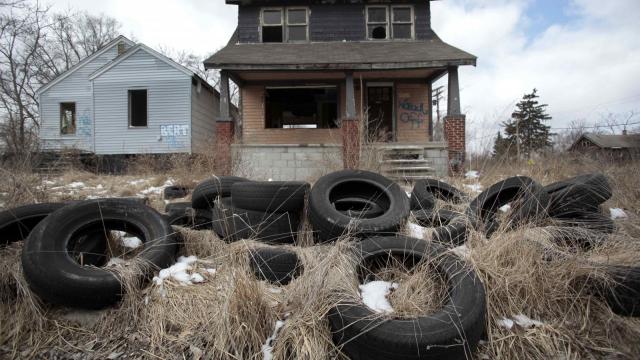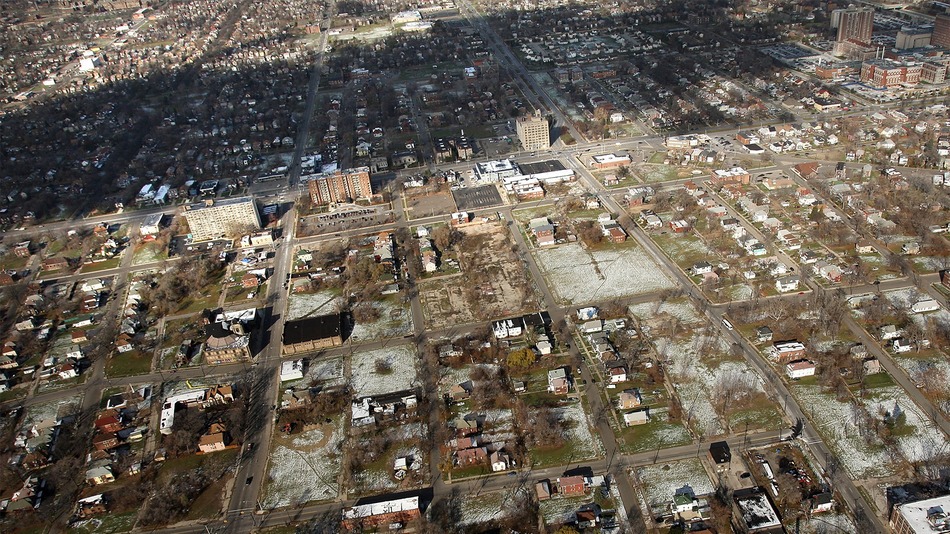
A federal judge recently set a deadline of October 23 for motions against Detroit’s bid for Chapter 9 bankruptcy. The city’s success is not assured; courts have ruled various municipalities ineligible for the status. No one can say for certain what awaits Detroit and its approximate 700,000 residents. If a bright horizon does emerge, however, it will almost certainly do so from behind even darker clouds than those that the once prosperous industrial center has seen thus far.
Bankruptcy, after all, is a costly reset button to press.
No one can say for certain what awaits Detroit, and I do not mean to try. I am more interested in how Detroit embodies worrying trends emerging across the country, affecting both the minutiae of public policy decisions and the broader, value-based framework that produces those decisions.
Detroit’s situation is a good starting point for such discussion, because catastrophes like the one the city is now facing offer a unique opportunity to assess the way our larger society is run. The moment requires drastic, hurried breaks from business as usual. But when there isn’t time for deliberation, and when the status quo is no longer a viable option, in what ways do we tend to re-write the rules? That is the question we, as a country, must now try to answer.
For context, let’s go back to 2008 and note what happened when Wall Street banks were on the verge of collapse. They were promptly deemed “too big to fail,” and given billions of dollars of taxpayer money. Well, Detroit is big, and it has failed. It is true that Detroit isn’t nearly as involved in our economy as banks are. But while many have been quick to point out Detroit’s imperfections (corruption, mismanagement, crime and the like), we surely didn’t extend a helping hand to the big banks because of their stellar track record, or on the condition that they straighten up and fly right.
Indeed, the suspect and forthrightly illegal business practices of those banks caused not only their own failure but wider economic ruin, but their executives were still permitted to awarded million dollar bonuses all the same. No city government will be a candidate for sainthood, but that is no excuse to do nothing whatsoever to help.
Detroit’s recent financial troubles are far too big to have been caused by poor administration. Changes in social and economic structure have caused much of the problem; poor administration reflects these changes, instead of causing them. Detroit’s population reached a peak in the 1950s when the city housed workers for major automobile manufacturers. But manufacturing jobs have vanished here, like throughout much of the country, as corporations seek to pad the bottom line by moving factories overseas. And as these jobs have gone, so have the people who performed them, creating a massive sinkhole in city finances.
An accompanying racial dynamic plagues the city as well: white flight. As African Americans moved in to take advantage of Detroit’s relative prosperity, many whites decided to make their homes in the suburbs instead, destabilizing many neighborhoods and depriving them of needed capital. After riots in 1967 killed 43 people, the exodus became even larger.
The structural problems facing Detroit, the decline of the middle class and racial division are concentrated incarnations of the problems facing our nation as a whole. Though the U.S. economy finally appears to be growing, the wages of the middle and working classes have remained flat, making it harder for many families to pay for increasingly expensive health care, education, transportation and food. And despite the popular election of Barack Obama and the sense that things are getting better, racial division and hostilities still plague our society. Black Americans are far more likely to be poor, to receive inadequate health care and education, and to find themselves incarcerated. If these problems can overwhelm a major city like Detroit, imagine them overwhelming our entire nation.
And make no mistake about who stands to lose the most. Who has been left the most vulnerable by Detroit’s impending bankruptcy? The working and middle classes, of course. Unions have challenged the bid for Chapter 9 because it will mean thousands of public employees would lose their pensions and health benefits, which were guaranteed to them upon obtaining employment.
After millions of people woke up in 2008 to see their savings and investments vanish with the housing bubble, little was done to help them; stabilizing the banks was the government's priority. Likewise, though the AFL-CIO has called for federal assistance to assure that Detroit’s workers do not lose the retirement and health benefits they planned to receive, no such assistance seems forthcoming. For one, it is not the priority of the city's unelected emergency manager, Kevyn Orr, who was appointed by Republican Governor Rick Snyder to evaluate and make recommendations to resolve the city's crisis.
But filing for bankruptcy can hardly be called a resolution. What is happening to Detroit should not and cannot be seen as an isolated incident, the product of corrupt government, crime, or mismanagement. It is the result of economically unfair structural conditions that apply to the entire nation. Unless we take action to realign our priorities, particularly during times of crisis, we can expect more Detroit-style trouble in the future.
Only then, the trouble won’t just be in Detroit.
3 WAYS TO SHOW YOUR SUPPORT
- Log in to post comments













